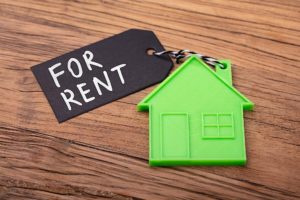How To Successfully Purchase A Rental Property

A rental property purchase is not the same as a fix and flip project. With a fix and flip deal, you are focused on generating short term profits whereas a buy and hold rental may be in your portfolio for several years. It is essential that you know everything about your rental market, the property and all corresponding numbers prior to diving in. Just one oversight, in any of these areas, can completely change the perception of the property. The cash flow that you thought you were walking into can be quickly wiped away and you will regret your decision.
One quality rental property can instantly transform your portfolio, but you need to choose the right property. Here are five important things to consider for a successful rental property purchase.
- Neighborhood: There is a difference between the market and the neighborhood. The property market is the Postal Code and the demographics within the town, or city. In most towns’ things can change on a dime, even just a few miles apart. Blindly investing in a market can open the door to disaster. That is why you need to invest in the neighborhood. As a rental property owner, it is important to always think like a tenant. If you find the neighborhood unappealing there is a good chance that tenants will feel the same. Without a steady stream of tenants into the property you will not have the demand you desire, which will impact what you can generate for rent. You may also have problems keeping good tenants and will have constant battles with phone calls and other neighborhood related concerns. Before making an offer drive the street, and surrounding areas, at different times to day to make sure you know exactly what you are getting into.
- Cost Of Repairs: It is always dangerous to buy anything strictly for appreciation. This is especially the case with a rental property. Sure, the value may rise in five or ten years but there is no guarantee the market will increase. With a rental property you need to secure monthly cash flow first before looking at anything else. A significant portion of your expenses will be your payment for the loan balance and any cost of repairs. The updates you make can weigh the expense sheet down and cause you to play catch up from the first month of ownership. Additionally, while you want your property updated you will not get an equal return on your investment initially. It may take several months, even years, for your improvements to generate revenue. You need to weigh the cost of repairs and the impact it will have on your tenants, and the potential rent received, prior to making an offer. If there is too much work, the numbers won’t make sense and you will be better off passing on the property.
- Know Property Weaknesses: There is no such thing as a perfect property. Even if you love where you live, there is almost always something you wish you could tweak or change, even slightly. The same is the case with a rental property. Instead of ignoring the warts with a property you are better off facing them head on. Acknowledge what is wrong with the rental, what needs to be changed and how it will impact the demand. Having a great physical property is often not enough to generate demand. If there is a lack of a yard, no off-street parking or the area is too busy renting can be a challenge. It is important to view the property as a rental and think about it from a tenant’s perspective. This doesn’t mean you can find tenants with a flawed property, but the monthly rent may not be what you anticipate.
- Understand Bottom Line: If you have never owned a rental property before the process appears straightforward. The amount you have left after paying your loan and other expenses is your cash flow. While this is true, there are several expense items that are often overlooked. You need to know about every dollar associated with the property before you get too far. Seemingly minor items like lawn care and snow removal add up over time. Paying the water bill may not seem like much, but must be factored into the bottom line. If you make assumptions on the expenses your margin for error may be slim. Just a few minor shifts in these accounts coupled with a reduction in rent can cause your bottom line to be wiped away.
- Management: Who is going to manage the rental property? While it is true that most good rentals run themselves, there will always be issues from time to time. If you are a part time investor, do you work at a job where you can get up and go if the plumber needs to be let in? Are you handy enough to take care of small problems or do you need to find someone? Can you separate your personal feelings for a tenant if they are late and you need to collect rent? How you manage the property has a direct reflection on the results. There will be long stretches when you won’t do much with a rental, but you need to be prepared to immediately handle whatever comes your way.
Rental properties are a great way to find success in the real estate world. However, you must know exactly what you are getting into.